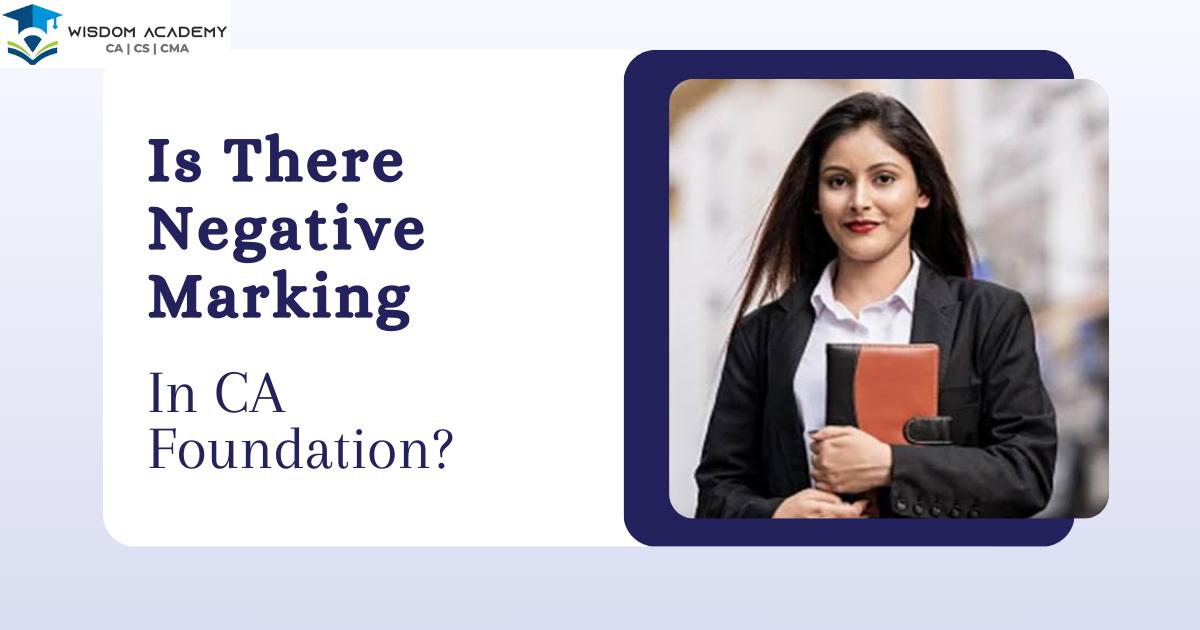The CA exam, known as the Chartered Accountancy exam, is one of the most esteemed and rigorous professional examinations in the field of finance and accounting.
Administered by the Institute of Chartered Accountants of India (ICAI), it comprises three levels: Foundation, Intermediate, and Final.
The exam rigorously assesses candidates’ proficiency in accounting principles, financial management, taxation, auditing, and various laws governing business practices.
Successful completion of the CA exam and fulfilling requisite practical training enables individuals to earn the prestigious title of a Chartered Accountant, opening doors to diverse career opportunities in finance, consultancy, and corporate governance.
Overview of the CA foundation examination
The CA Foundation exam is the entry-level test. It comprises four subjects:
- Principles and Practice of Accounting: This subject covers fundamental accounting principles, preparation of financial statements, and basic accounting procedures.
- Business Laws and Business Correspondence: It includes business laws such as Indian Contract Act, Sale of Goods Act, and basics of business correspondence and reporting.
- Business Mathematics, Logical Reasoning, and Statistics: This section involves mathematical concepts applicable to commerce, logical reasoning, and basic statistics.
- Business Economics and Business and Commercial Knowledge: It covers economic concepts, micro and macroeconomics, and commercial knowledge focusing on business environment, business organizations, and government policies.
Out of these papers (Subjects), paper 1 and 2 are absolutely descriptive and 3 & 4 are objective.
Twice a year, in May and November on average, the CA Foundation test is administered. The exam is pen and paper based, with multiple-choice questions (MCQs) worth one hundred marks each subject to evaluate candidates. Every paper lasts for three hours. Candidates must receive at least 40% in each subject and a cumulative 50% in all subjects to be eligible.
Each subject carries a total of 100 marks, making it a ground total of 400 marks in all.
The purpose of the exam is to assess applicants’ knowledge of fundamental accounting concepts, business laws, economics, and mathematical skills related to accounting and finance. For those who want to pursue a career in the prestigious field of chartered accounting, it is a first step.
Is there negative marking in the CA foundation exam?
Well, the answer to this question is YES, there is unfortunately some negative marking in this foundation level exam. However, it is applicable only for papers 3 & 4, that is, Business Mathematics, Logical Reasoning, and Statistics & Business Economics and Business and Commercial Knowledge.
Both these papers carry a weightage of 100 marks each and the duration for the same is 2 hours each. For every correct question you can score one mark, whereas, for every incorrect answer, you will lose 0.25 marks.
Also, for every question, you will have 4 options out of which you have to choose a single right option.
Since the students are penalized for answering a question incorrectly, it encourages candidates to approach questions with prudence and answer to the best of their knowledge, thereby promoting a more confident and informed approach to answering.
It also allows candidates to answer questions based on their understanding rather than resorting to guesswork.
Tackling negative marking in the CA foundation level exams
Here are some tips to help students overcome the fear of negative marking in the CA Foundation exam:
- Complete Preparation: Pay close attention to making sure you fully grasp the ideas and subjects. Having a solid understanding of the material lowers the likelihood of providing a wrong response.
- Practice Frequently: To familiarize yourself with the format and kinds of questions asked in the exam, solve a lot of practice questions and papers from prior years. This exercise improves response accuracy.
- Time management: Throughout the exam, make good use of your time. Give each question enough time, and refrain from answering them quickly.
- Elimination Technique: When uncertain about an answer, use the process of elimination. Eliminate obviously incorrect options to increase the likelihood of selecting the correct answer.
- Don’t Guess Randomly: Avoid guessing answers randomly. Instead, make an educated guess if you can narrow down the options through reasoning or partial knowledge.
- Read Questions Carefully: Pay close attention to the wording of each question. Sometimes, the phrasing might provide clues to the correct answer or help in eliminating incorrect choices.
- Remain Calm and Focused: Throughout the exam, try to keep your thoughts under check. Stress or anxiety might cause hasty decisions and a higher likelihood of mistakes.
- Revision and Review: If you have time, go over your responses after responding to all the questions. Take this opportunity to double-check calculations or reevaluate unsure answers.
- Simulations and Mock Exams: Use practice exams that replicate exam settings, such as time limits. By familiarizing oneself with the exam setting, this practice helps to lower anxiety.
- Self-assurance in Getting Ready: Have faith in the skills and information you have acquired over the study session. Your worry of receiving a poor grade can be lessened if you have faith in your comprehension of the material.
Following these tips and adopting a strategic approach to answering questions can help students navigate the CA Foundation exam confidently, mitigating the fear of negative marking and improving their overall performance.
Join Wisdom Academy for more such tips and tricks and crack the CA exams with more confidence and ease.


